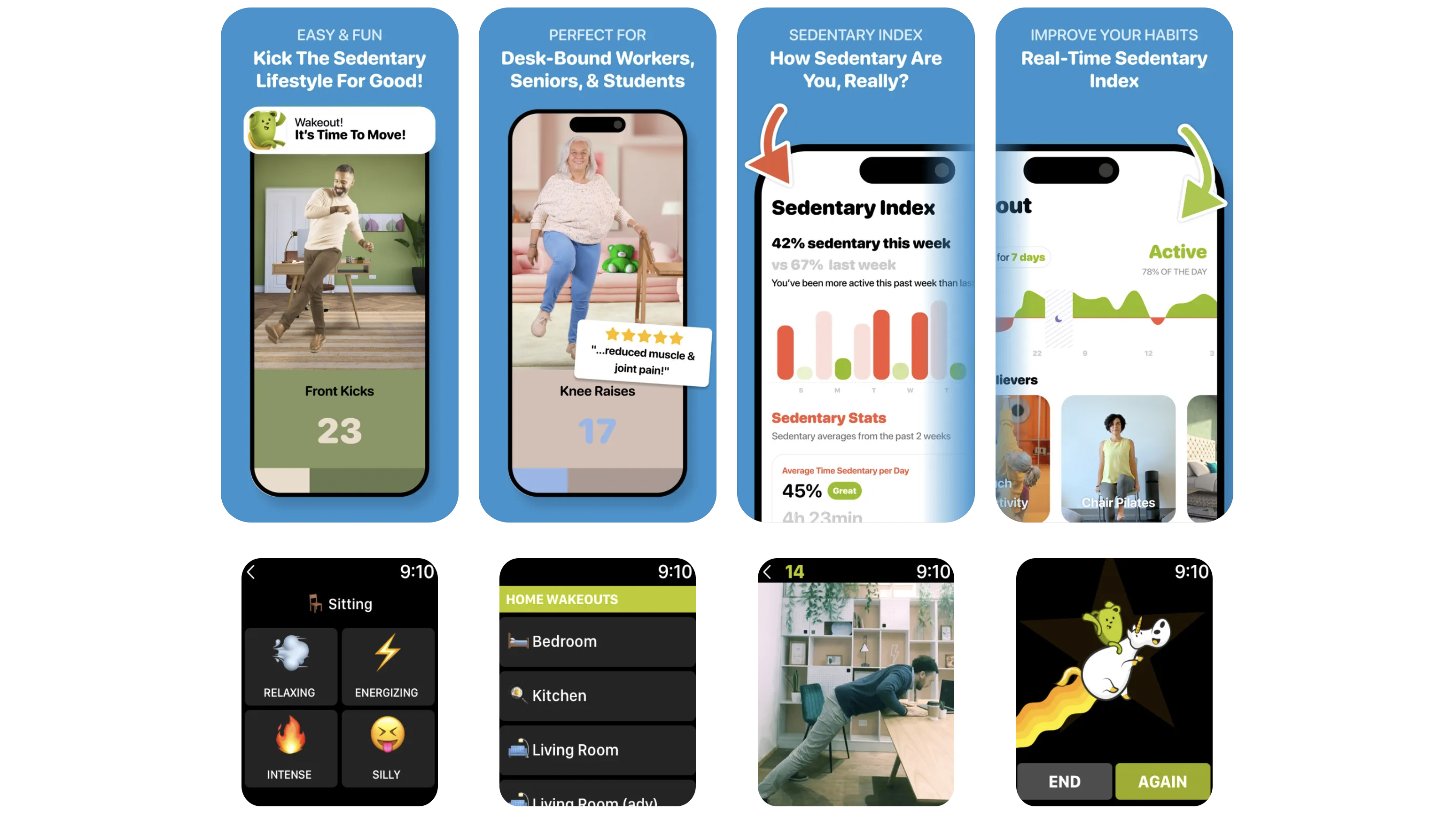

Most days I read headlines about how we all spend too much time sitting and not enough time moving. I make a lot of effort to walk, exercise, and move throughout the day. I often use my Apple Watch to force myself to stand up. But Wakeout combines similar notifications with many things you can do after waking up.
The Wakeout app (officially called Wakeout! Defeat Sentary Life on the App Store, but it’s too clunky) uses information from Apple Health to figure out how sedentary you are. I’m 14% sedentary, which is surprising for a freelance writer. It shows that my workouts paid off because I expected worse.
The app then asks you questions about your day to figure out the best time to get moving. We’ll then give you thousands of different movements, stretches and exercises spaced out throughout the day. This is ideal if the advice to just stand doesn’t actually work. It works on iPhone, iPad, and Apple Watch, but I think it works best on Apple Watch because it can’t be ignored. Or at least that’s what works best for me.
If you’re already wearing one of the best fitness trackers or an Apple Watch, you already have access to the ability to set notifications and alarms, so an additional app might be too much of a hassle. But if not, or if you want a dedicated app, Wakeout is a good choice. You can try a 7-day free trial to see if it works for you, but after that it feels very expensive at $11.49/£11.49 per month, so if you want to keep it, choose the $52.99/£52.99 per year option. Instead, it works out to $4.42/£4.42 per month.
What makes the Wakeout app better than a fitness tracker?
The best thing about Wakeout is its recently added feature called AI Health Reminders. I know the term AI is everywhere these days, but what it means in this context is that the Wakeout app can learn more about your habits and schedule to provide better, more timely recommendations.
For example, it is not helpful to be watching a movie and be told that it is time to get up and move. Yes? But that’s exactly what many activity apps, fitness trackers, and smartwatches do. Apple Watch is waiting for you.
The idea behind Wakeout’s AI health notifications is that mobile reminders are delivered at a more convenient time. Based on my experience testing the app so far, this is indeed true. It’s hard to emphasize how important this is for apps that promote behavior change. If you feel bothered by an app or think it’s just another inconvenience, you’ll probably stop using it pretty quickly.
Honestly, this was one of my initial concerns about Wakeout, considering they used fear tactics when I first signed up and listed all the health issues I had that prevented me from getting up regularly. It’s valid, but I personally don’t think fear acts as a motivator. Luckily, that didn’t stick around and it’s a positive app to have in your toolbox for moving more and developing healthier habits.


